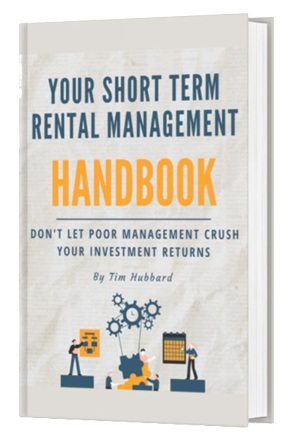Over 30% of real estate deals fall through due to failed negotiations.
Navigating the real estate market can often feel like steering a ship through stormy seas. While there’s potential treasure to be found, there are also pitfalls to avoid. Knowing when to reject a real estate offer is as vital as recognizing a golden opportunity.
Let’s explore the reasons and scenarios where turning down a deal might be the best course of action.
Reasons to Reject a real estate offer
1. Numbers Don’t Add Up
In the world of real estate, numbers are your compass. If they’re leading you astray, it might be time to reject a real estate offer. Whether it’s skewed rent projections, underestimated expenses, or overlooked taxes, it’s a clear sign to reconsider your course.
For example, if the rent projections are based on an ideal scenario where the property is always fully occupied, this might not be realistic.
Similarly, if the expenses are underestimated, it could significantly affect your bottom line. Always ensure that you have a clear and accurate understanding of the numbers before making a decision.
2. Time and Work Involved
Every property comes with its own set of demands. Whether it’s management needs or renovation efforts, it’s essential to gauge if you have the bandwidth and expertise to handle it. If not, it might be another reason to reject a real estate offer.
For instance, if a property requires extensive renovations and you don’t have the time or expertise to manage the project, it might not be the right investment for you. Also, if the property requires ongoing management and you’re not prepared to handle it, it might be best to walk away.
3. Unknown Factors
From changing rental regulations to unforeseen community developments, it’s crucial to be aware and prepared. If there are too many unknowns, caution is advised.
For example, if there are pending zoning changes that could affect the property’s value or if there are plans for new developments that could impact the neighborhood, these are factors that need to be considered.
Another example is entering a real estate market that doesn’t already have a policy for short term rental regulations. This is also a red flag because it could prohibit short term rentals eventually. So, it’s best to enter a short-term rental market that already has rules established.
Always do your due diligence and research any unknown factors that could affect the property before making a decision.
4. Location Issues
The mantra “Location, location, location” holds. A property’s surroundings, accessibility, and neighborhood trajectory play a pivotal role in its value and potential. If these don’t align with your goals, it might be time to reject a real estate offer.
So, if a property is in a declining neighborhood or if it’s not easily accessible, these are factors that could affect its value and potential for appreciation.
Natural disasters are also a key thing to look into when acquiring a property. Let’s take Florida for example – insurance costs have gone through the roof due to hurricanes.
Download The 16 Page Guide to Acquiring The Right Property For STR Returns
The type of property and its location can make or break your investment.
Don’t “bet the house” on the wrong property.
Find out how to determine the right markets and properties for better, safer returns…


My experience with real estate offers
Development Deal in Medellin, Colombia
Down in Medellin, Colombia, I was presented with a development opportunity. A prime lot in arguably the best part of the city was up for grabs. It was a high-rise building, possibly 15 stories or more, with a focus on short-term rentals.
However, there were several red flags. The upfront costs were significant, and there was a risk of losing a substantial amount of money if the deal didn’t pan out. The architect involved in the project didn’t seem easy to collaborate with, which raised concerns about the long-term partnership.
In real estate, especially in projects of this magnitude, partnerships are crucial.
Starting on the wrong foot, especially with key players like architects, can spell doom for the project. The importance of a harmonious working relationship cannot be overstated.
Additionally, the financial structure of the deal was concerning. The idea of paying the sellers a monthly amount during the 9-month licensing period, with the risk of losing it all if things didn’t work out, was a significant deterrent.
An example I turned away from
A unique opportunity arose when someone approached me with a lease arbitrage deal in the U.S. This wasn’t a property purchase but rather a lease for 16 apartments in a prime area of town. These were brand-new constructions, situated in a fantastic location, walking distance to top-tier restaurants. The allure was undeniable, and I found myself emotionally attached.
But, as with all investments, the devil is in the details. While I typically prefer to own properties, analyzing any real estate deal comes down to the numbers.
And here the numbers didn’t quite align. The rent the owner sought was higher than what I deemed feasible. Coupled with the uncertainty of guest inflow, the risk seemed too high.
Additionally, the time and effort required to furnish all 16 units, potentially costing upwards of $75,000, were daunting. The potential of investing so much time and money only to find out in a few months that the venture wasn’t viable made me decide to reject the deal.
FAQs
Ensuring accurate numbers in a deal is crucial to making informed investment decisions. Start by cross-referencing the provided figures with local real estate agents and property managers who have firsthand knowledge of the area. They can provide insights into the average rent prices, vacancy rates, and property management costs.
Another thing you can do is review recent sales or rental data to gauge the market conditions and validate the numbers. Don’t hesitate to ask for documentation or proof to back up the numbers provided.
It’s better to spend extra time verifying the figures than to make a decision based on inaccurate information.
Properties in poor condition are not necessarily a bad investment choice. The key is to conduct a thorough assessment of the property’s condition and estimate the repair costs accurately. If the potential returns justify the renovation expenses and you have the resources and expertise to manage the repairs, it can be a viable investment.
However, it’s essential to consider the time and effort required to bring the property up to standard and whether it aligns with your investment goals.
Staying updated on market conditions is vital to making informed investment decisions. Regular consultations with real estate experts, such as agents, brokers, and market analysts, can provide valuable insights into the current trends and future projections.
Additionally, subscribe to real estate market reports and publications to receive the latest data and analysis.
Lastly, stay tuned to real estate news and updates, as they can have a significant impact on market conditions.
Regulatory and zoning issues can be complex and vary by location. If you’re unsure about the regulations or zoning requirements, it’s recommended to consult with local authorities or hire a local real estate attorney. Hire a real estate attorney if you don’t have any other option and you still want to move forward with the deal.
They can provide clarity on the specific rules and regulations applicable to the property and ensure that you are in compliance. This step is crucial to avoid any legal complications or fines in the future.
While diversification is not mandatory, it is a recommended strategy to spread and mitigate risks. By diversifying your real estate portfolio across different property types, locations, and tenant profiles, you can reduce the impact of a poor-performing investment on your overall portfolio.
Diversification also provides the opportunity to capitalize on different market conditions and trends, ultimately enhancing your potential for returns. However, it’s essential to conduct thorough research and due diligence before diversifying to ensure that each investment aligns with your goals and risk tolerance.









